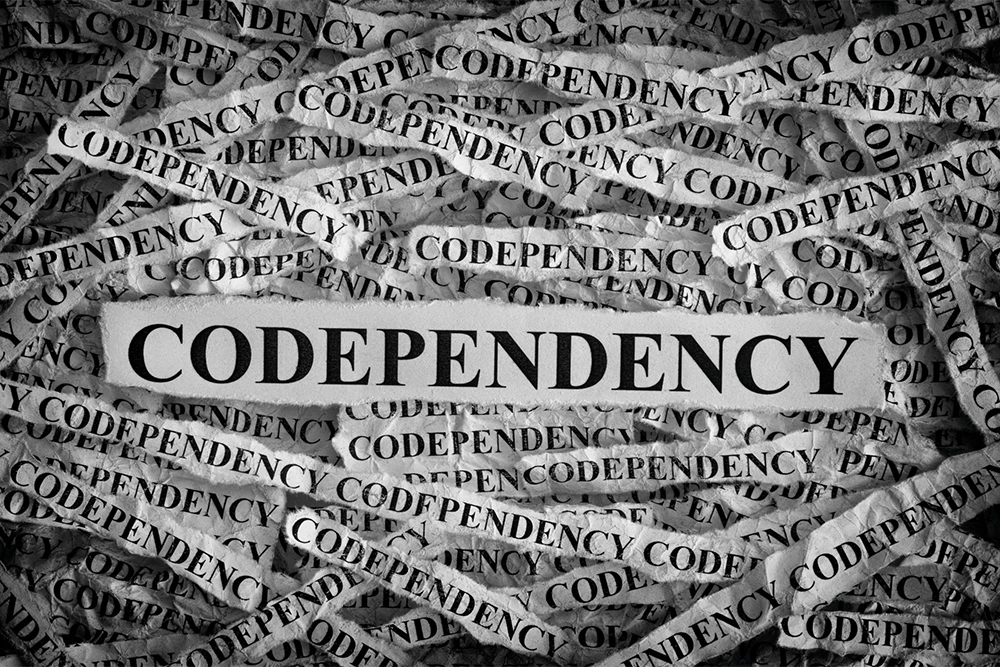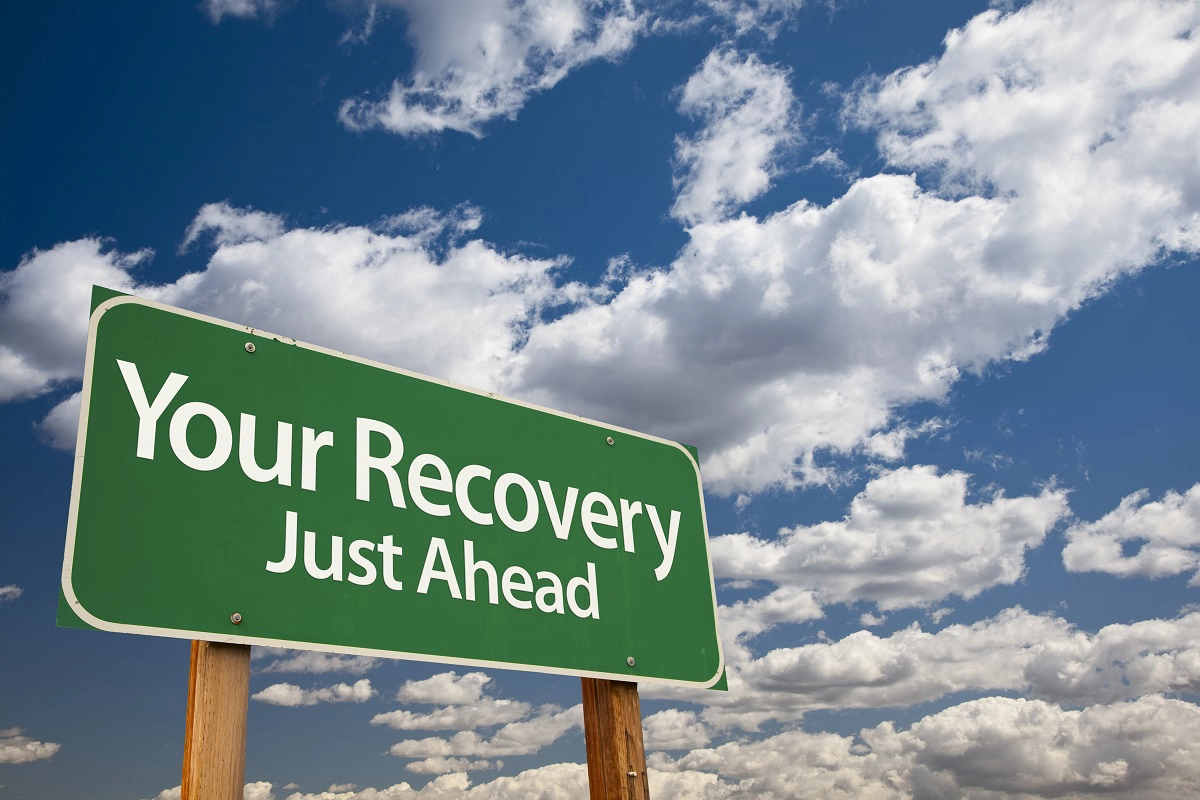Codependency
Most people are oblivious to this fact. But where addiction is concerned, it is easy to fall into codependency. When we all get into relationships, we can get really dependent on our partner. The euphoric stage of love makes us rely on our partner for everything.
We want to talk on the phone all the time, go out on dates every other day and spend as much time together. This is not necessarily a bad thing. But once we come down from that emotional high and then realize that we have been leaving in concession all the while, then there is a problem.
If you find yourself in a situation where you seek approval from someone or your partner, it seems you have lost your identity and depend on him/her to define who you are, you are for a fact in a codependent relationship. This form of relationship is unhealthy and it leaves you with a feeling of responsibility for your partner’s actions, wants, feelings and choices.
Codependency is not healthy for anyone. It is toxic and can be very addictive. If you think your joy and happiness is totally dependent on anyone else but yourself, you are currently in a relationship spectrum called codependency. In this article, we will take a closer look at what this type of relationship really is, and how to get out of it.
What is Codependency?
Codependency exceeds the confines of a romantic relationship. Usually, the concept of a codependent relationship is now relative. It is not necessarily restrained to a romantic one.
History-wise, one party in this type of relationship is usually associated with a problematic situation such as; drug addiction, mental health condition (especially schizophrenia), disability, immaturity, poor physical health and alcoholism.
If you still wonder, “what is codependency in addiction,” the answer is quite simple. The codependent one in the relationship will often take care of the addicted partner, making them their sole responsibility.
A typical example is a woman who has an alcoholic as a husband or a marijuana addict as a son. She feels the need to always buy beer or provide money for cannabis purchase making it available at her husband/son’s disposal. While this may be done in order to prevent him from being upset or even abusive, it is still codependent behaviour.
Another example is a codependent constantly paying bail for an irresponsible son who is always caught shoplifting. Saving a grown-up from the consequences of his/her financially unwise decision is another form of codependency.
These relationships are not mutual. They are more parasitic i.e. a partner is feeding off another partner emotionally, mentally, physically and psychologically. It is always one-sided. The hosts (codependent individuals) gives more than they actually receive resulting to an unhealthy imbalance for both parties.
The partner who has the issue does not have to deal with the consequences of their behaviour, but the codependent partner always has to clean up the messes they make. This can be very exhausting and draining.
In recent times, codependency now has to do with different personality types. Rather than existing in a relationship between two people, it is now more attributed to single individuals. Studies have shown that being raised in a dysfunctional family, unhealthy homes and environment can lead to someone becoming codependent.
People who have experienced an emotionally unhealthy home are likely to further get themselves into codependent relationships. These people are called codependent individuals and they come with some traits such as fear of being alone, taking criticism personally usually to the extreme, and trying to please everyone.
They are consumed with the fear of rejection. They can’t stand being told NO. They are caregivers and mostly find it difficult to develop emotional intimacy with anyone.
This unbalanced connection between two people is considered toxic and sometimes dangerous. So, if you are wondering how to get out of a codependent relationship, read on. But first, let’s discuss how this type of relationship springs up in the first place.
The Relationship Between Codependency and Addiction
If you are looking to stop codependency, the first step is to understand its relationship with addiction. These two conditions are a pair that are as old as time.
Now, addiction is a rather difficult issue to cope with. Naturally, getting rid of addiction comes with several challenges. However, besides that, addiction treatment can also be a pretty tough hill to climb. This is especially so during the stage of withdrawals and the symptoms that come with it.
Unfortunately, codependency makes things worse. We’ve already established that codependent people often find themselves unhealthily attached to their partner(s). They often feel the need to take care of them.
Additionally, most addicts are usually resistant to treatment. Addiction changes the way you think. As a result, it can take a while for your mind to get up to grips with stopping addiction.
This is often the case even if you truly want to get over the addiction. When this happens, the relationship between codependency and addiction becomes one of enablement. In the end, it can make the addiction worse.
A great way to explain it will be the case of a teenager struggling through substance abuse. After spending a few days at rehab, things are getting a tad better, but he has to resume school.
Unfortunately, as soon as he does, he’s exposed to multiple triggers, including friends he normally doesn’t see during the holidays. When this happens, he starts getting intense cravings that leave him struggling a little too hard. He becomes withdrawn, moody, irritable, and is all too unfriendly to his mother.
Fully aware of his predicament, his mother provides extra money as a part of his allowance. She knows well enough that he’ll most likely use it to purchase and indulge. But, because she’s a codependent who hates to see him down all the time, she does it anyway.
This is the answer to the question, “what is codependency in addiction?” While several other examples and scenarios can be given, this sums it up fairly well. It is an unhealthily enabling relationship that poses dangers to its participants in more ways than one.
How Does a Codependent Relationship Begin?
Codependency is not innate neither is it a natural occurrence. It is behaviour born out of emotional difficulties or terrible past experiences. It is purely psychological. As at one time, it was said to develop as a result of being raised by alcoholic parents.
Medical practitioners now say that this condition can arise from a variety of situations. Let’s take a look at a few of them.
Traumatic child-parent experiences
People who usually end up as codependents often have issues with their parents while growing. They are used to their needs coming second to their parents’ needs. They have been taught that their needs are not important. In this type of relationship, the child is told to focus only on the need of a parent, never to think of his/her own needs as that is negligible.
Due to selfish parents, the child grows up only focusing on the needs of others at the detriment of his/her own needs. It’s always about what they can do for others and never for once what they can do for themselves. In this sort of situation, one of the parents is either a drug addict or is just irresponsible. This ends up leaving the child in search of emotional support and most end up in a codependent relationship.
Living with a mentally or physically challenged family member
Codependency may also be as a result of caring for a family member whose physical and mental wellness is deteriorating. Playing the role of a caregiver at such a young age may lead to an individual forgoing his/her needs to cater to the needs of others.
A person’s worth might then be defined by being needed. A larger percentage of people who grew up with a sick family member mostly do not end up being codependent. However, the environment can breed developing such traits especially if the parents are not responsible. In this case, the responsibility of taking care of such family members falls solely on the child.
Abusive families
Abuse of any form either physical, sexual or emotional can cause PTSD (Post Traumatic Stress Disorder). This is a major psychological issue that can take years to fix or even a lifetime. One of the most common results of abuse is Codependency. The victim usually uses this as a coping mechanism to deal with the trauma. Most times, this is done unconsciously. The individual is usually not aware until they seek medical care.
A child or teenager who has experienced one form of abuse or the other while growing up will learn to suppress their feelings. This is done in order to avoid getting hurt constantly. However, when such a child becomes an adult, he/she ends up caring only about other people’s feelings with total disregard to his/her own needs.
It is very common that a child brought up in an abusive home will seek an abusive codependent relationship because this is what the child is used to.
How to Get Out of a Codependent Relationship?
Have you noticed that your relationship is mostly one-sided? Do any of the situations discussed above sound familiar? If you find yourself getting into this cycle of emotionally destructive relationships time and time again, it is time to seriously consider finding out how to stop codependency.
It is a fact that codependency prevents you from forming healthy meaningful relationships with other people. If you are tired of being codependent and wondering how to get out of this situation, you may want to start considering setting healthy boundaries. We’ll further discuss this.
You can follow the steps below.
Take a break
Take out time for yourself. If you have to leave the relationship for a while, do it. When you are too engrossed with the other person, the best step to take is to end the relationship completely. It may seem harsh and difficult but if you do not, both of you will keep acting the same way. Nothing will change.
It is understandable that some relationships may be more difficult to leave than others, especially if you are cohabiting or working in the same office. You are in each other’s space every minute of the day, so it can be quite problematic. Even when this is the case, build up the courage to leave. Find time to be with yourself, seek tranquillity and be mindful of your thoughts.
Shift your attention from the other party and focus more on yourself. This is called reconnecting with yourself. It can be quite difficult and you may feel uncomfortable at first but with constant practise, you will get used to it.
Note that if you just got out of codependency, don’t go looking for another relationship. It is highly likely that you will attract another codependent relationship. Give yourself time and space before entering into another relationship.
Set boundaries
The moment you start to pull away from a codependent relationship, the other person begins to feel uncomfortable. They will try everything to keep you in the relationship. Why? They are already used to being taken care of by you. So, if you change, they will also have to change.
Do expect some resistance. Especially if you finally break off the relationship. Expect them to be angry with you, say things to make you feel guilty, keep bombarding your phone with calls, texts and emails. They will intrude your personal space. Do not give in. You do not want to be stuck in this codependency loop forever.
Instead, draw the line. Be aware of your responsibility and keep communicating the boundaries repeatedly to the other party. Until they become aware of their own responsibility and stop resisting, do not stop.
It is either they come to the realization that you have changed and they’ll have to, or they find another person to feed off on. Whatever, the outcome may be, make yourself your top priority and keep working on yourself.
Face your past
Developing codependency traits is not something that happens naturally, it is usually triggered by past traumatic experiences. Take a look at the events of your life, especially your childhood and teenage years.
Abuse and neglect can make you develop codependency as a coping mechanism. It is what you have been exposed to. That is the only type of relationship you know how to be in.
It can be very painful and uncomfortable to dig up events from your past, but it has to be done if you want to get out of a codependent relationship. In order to completely heal and move forward, you may have to deal with your past.
Practise self-awareness
There is a thin line between love and obsession. It is not easy to get out of a codependent relationship but when you do, that is not the end of the road. There is more work to be done. When you finally heal from a toxic relationship and decide to move on to the next, there may be signs of neediness the other person displays that may trigger your codependency habits.
You have to be aware of these habits. Pay close attention to yourself. Practise introspection from time to time. Notice how these obsessions show up. Ask yourself questions like: Am I going the extra mile to be with this person? Am I a codependent moving from one relationship to the other? Am I doing all the work? Is the other person as invested emotionally as I am?
These are questions to ask yourself. Remember you can give out love and care without taking up their full responsibility and thinking about them all the time. Be mindful of the patterns. You don’t want to go from a codependent partner to being a codependent friend. It is very possible to break this cycle.
What are The Dangers of Remaining in a Codependent Relationship?
The list of potential challenges you can face if you choose not to begin working on yourself is rather large and scary.
For starters, the chances are that you’d begin to deprive yourself of the basic things you’d need or want. Instead of saving that extra dollar to pay your power bills, you’re spending to please your codependent partner.
Instead of getting the appropriate medication for that nagging migraine you’ve got, you’re buying the cheaper version with more side effects than your fingers can count.
Some codependent people may say this isn’t much of a problem. This is usually so because they’re financially endowed enough to satisfy themselves. But have you considered that you may be hurting the person you love so much? The more you feed their addiction and enable it, the more you hurt them.
For instance, if you keep pretending not to know that your son uses his extra allowance for cocaine, you’re enabling him and ruining his mind in more ways than you can count. If you keep thinking that your boyfriend can’t burn through the alcohol you keep buying for him, you’re ruining his liver, among many other organs. All these are beside the fact that you’re greatly slowing down your addicted partner’s recovery.
Conclusion
If you feel like you are stuck in codependency or can’t seem to get the hang of how to stop codependency in addiction, do not succumb to that feeling. It is important to know that you have the power. You have the capability to break the unhealthy cycle. You can develop healthier relationships with people. You can overcome codependency!
Intentionally working on yourself, giving more attention to self-care and making yourself your topmost priority will help you get back to your feet. Learn to be more independent, set healthy boundaries in your relationships and watch yourself build and develop more healthy relationships.
Related article: Alcohol Dependency and Questions to Ask If You’re Becoming Addicted to it







